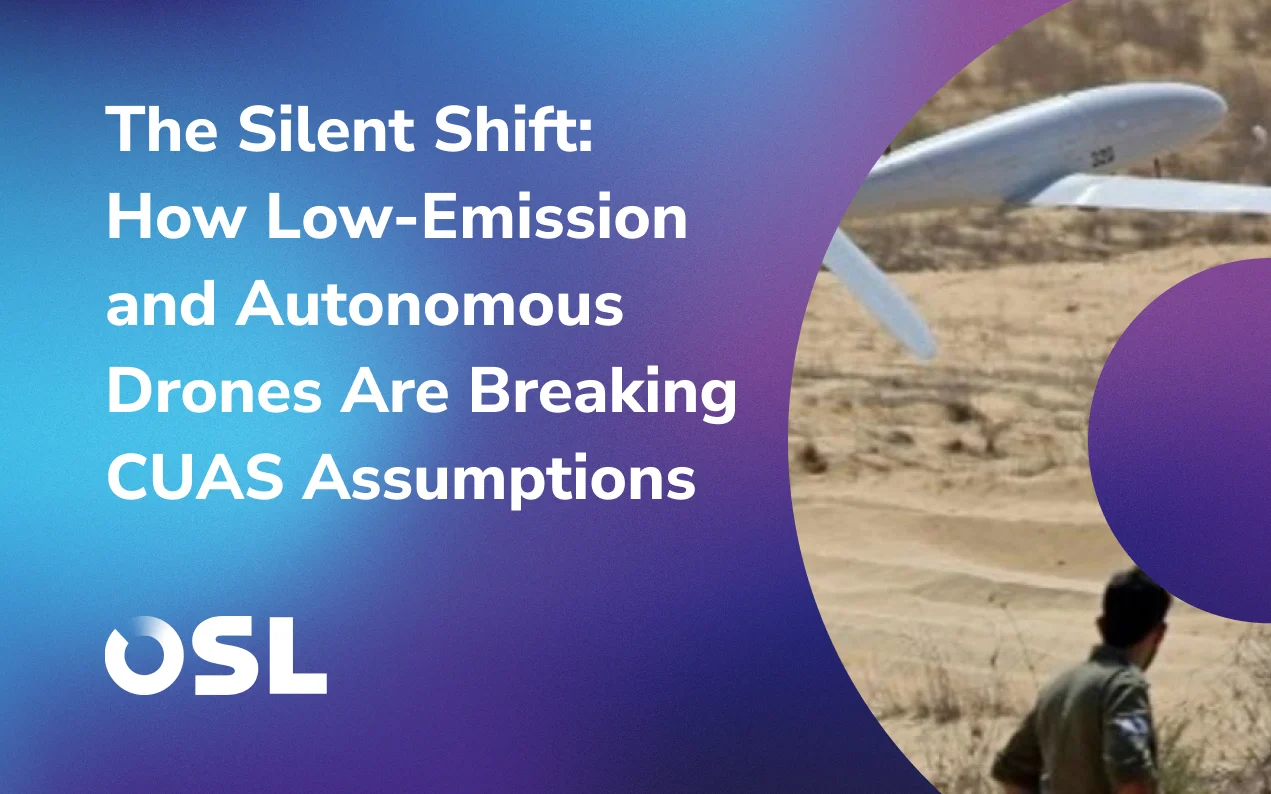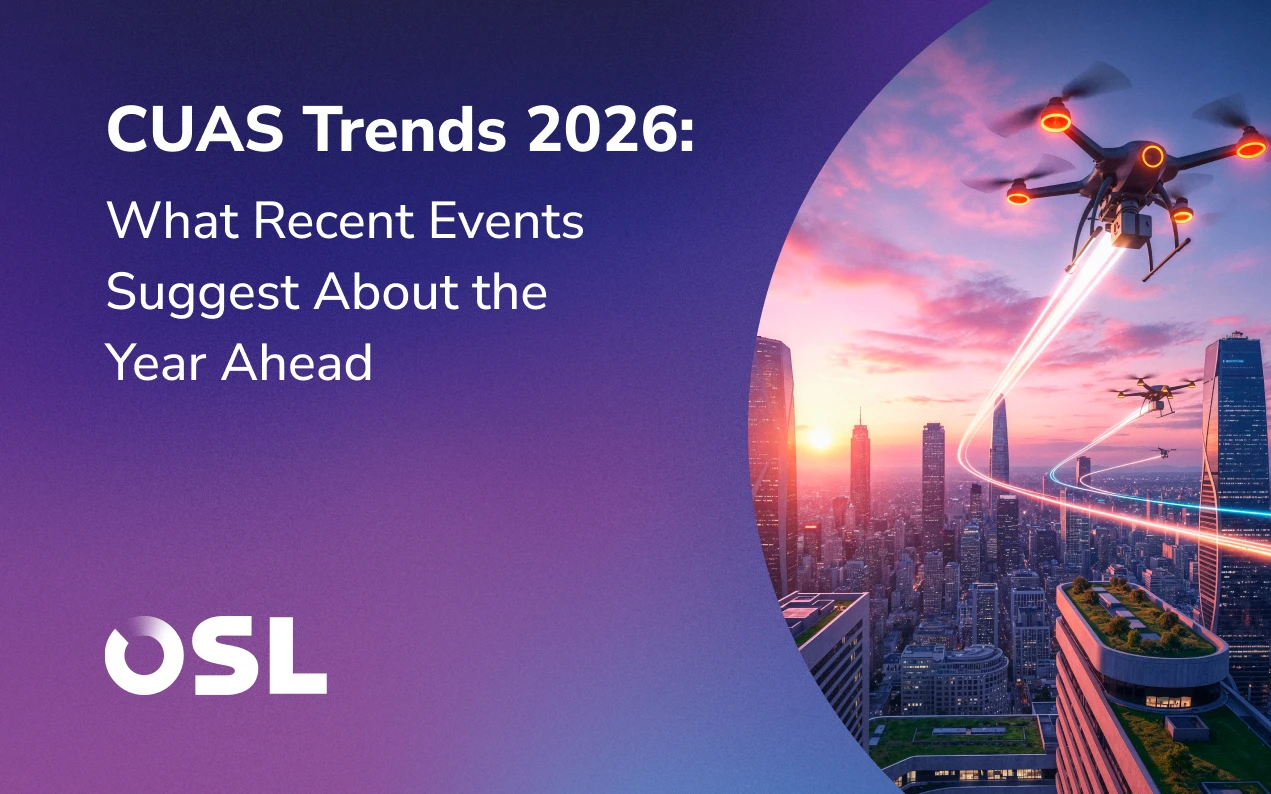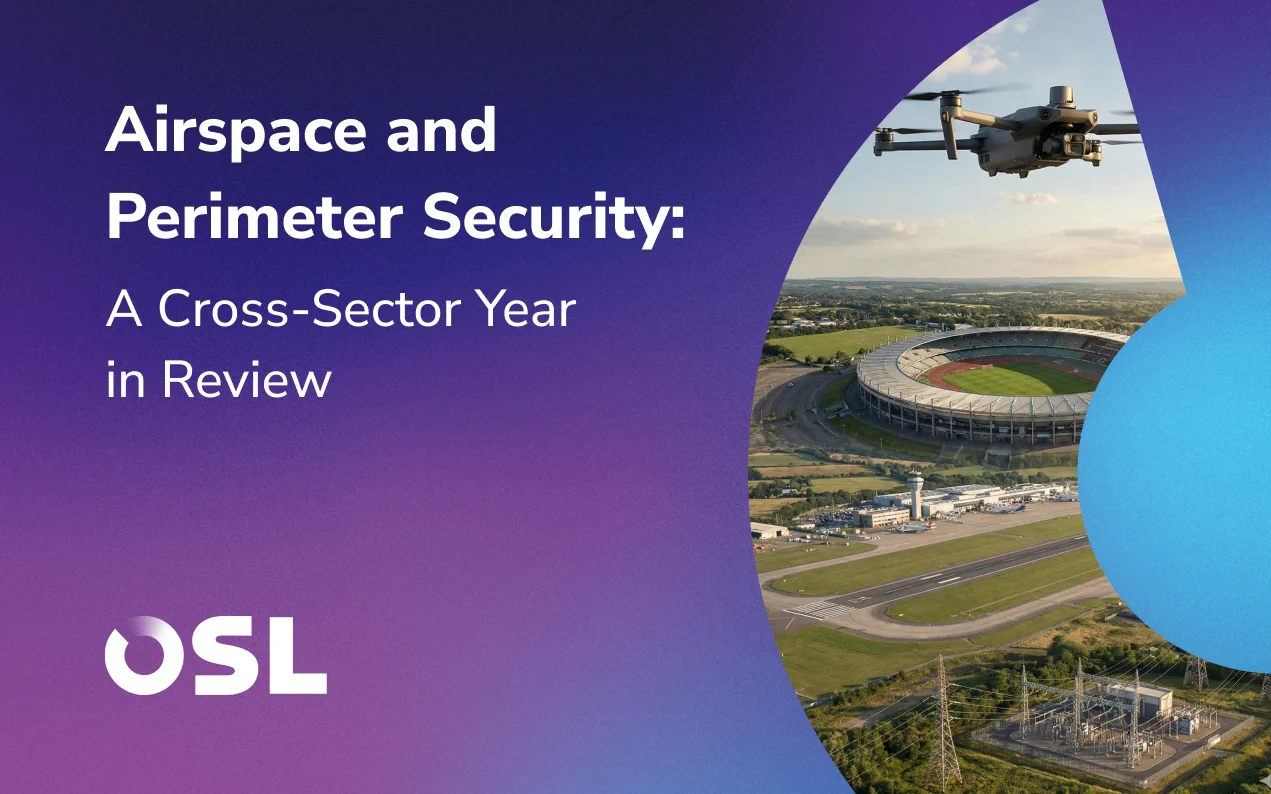Securing the fan experience: lessons from Wembley Stadium


Recently, we had the privilege of sitting down with Stuart Doyle, Stadium Safety Officer, and their Head of Security at Wembley Stadium.
Together, we delved into the dynamic landscape of fan safety, spotlighting Wembley’s proactive approach to security in response to the new evolving challenges and best practice guidelines.
Read on to learn more about the rising demand for advanced safety precautions, and Wembley’s dedication to elevating the fan safety experience.
What do new best practice guidelines provided by the NFL mean for stadiums like Wembley Stadium?
Stuart: Our commitment to security predates the latest best practice guidelines outlined by the NFL mandate. We always take security seriously, but its introduction acted as a catalyst to push forward and expedite security enhancements, such as accelerating the installation of systems such as the Drone Alert System. It’s great to see that the NFL's best practice guidelines, both domestic and international, represent a benchmark of fan safety that really aligns with our commitment to excellence.
Head of Security: These mandates are great for comparing international security requirements, which helps in particular with our international partnerships. It demonstrated that we routinely adhere to these standard, and where we can adapt where necessary to international needs. This instils confidence not only in our dedication to fan safety, but underlines us as an attractive venue for various events, including hosting distinguished teams like the Jacksonville Jaguars.
How has Wembley Stadium adapted to evolving security requirements?
Stuart: We think of each event at Wembley Stadium, whether it's a concert or a sports game, as a unique challenge.
This involves systematically evaluating every aspect of our security to ensure that it’s tailored to the current event. You wouldn’t set up your security the same for a concert and a sports game, and each game or team is different, so that flexibility is really important.
To do that, we always consider three pillars: physical security measures, personnel security which includes comprehensive training, and cyber readiness. By consistently integrating cutting-edge technologies, such as the Drone Alert Service (DAS), we can ensure that we not only meet but exceed evolving security expectations.
Head of Security: Continuous evolution is important in security. For example, if you look towards emerging technologies, the threat picture is always changing. DAS is the latest innovation that we brought in that enhances our current systems, but there’s also a mindset aspect. We want to operate at a level beyond expectations, implementing measures that offer a heightened sense of security without compromising the overall fan experience. Much of what we do is not seen by people attending the stadium, but it is there and not only for events. This is a 24/7 monitored system.
Can you share some insight on the balance between security measures and the fan experience at Wembley Stadium?
Stuart: What I’ve definitely learned to appreciate is that people want to feel safe and secure, without feeling overwhelmed by visible security measures. You don’t want to feel constantly watched!
Head of Security: For us, that means striking a delicate balance between robust security and an unobtrusive presence. It's having them all fitting together as part of that jigsaw to create a complete ecosystem of security measures that seamlessly integrates into the overall fan experience. It is all about Safety, Security and Service and as a result, we can offer that peace of mind without hindering enjoyment. And that is whether you are attending events, a tour, or working at Wembley. Our Security is in place 24/7 and supports the wider security regime of Wembley Park everyday.
What role does mindset have to play when we’re talking about effectively ensuring fan safety?
Head of Security: Mindset’s definitely an important – if not THE most important – factor here.
People are our biggest asset. Operating consistently at a level beyond expectations needs a mindset that brings in a holistic approach. It's not just about the individual components – the team, the sensors etc; it's about bringing all measures together into a cohesive risk management process.
Stuart: Adding to this, I’d bring it back to that point about always striving to be operating at a level above expectations – about cultivating a culture of ongoing improvement and adaptability.
There are a wide range of security threats that are becoming more sophisticated, so we need to have that mindset of always remaining one step ahead. Drones are a perfect example of this, which is why we’re so pleased to collaborate with OSL. Bringing DAS to Wembley Stadium has bolstered our security system to be more robust than ever.
What lessons have you learned from Wembley's experience that would benefit other UK stadiums?
Head of Security: I love this concept of the three S’s: Safety, Security, and Service. The more experience I’ve gained in this industry, the more I’ve come to realise how fundamental these are. Exceptional service is a linchpin in enhancing the overall fan experience. Witnessing the passion within our workforce, from ticketing to cleaning, drives our commitment to maintaining high standards across all departments.
Stuart: For me, it’s the element of collaboration – collaboration between colleagues, and the wider partners beyond our boundary. That includes the public. The more information we can share about specific security risks, the more our teams can understand it, and deliver the appropriate levels of service. The safer the venue feels, more people will come to our events in confidence that we’re committed to navigating that ever-evolving security landscape effectively. We listen to the public and react to their needs.
How can other UK stadiums begin adapting to the changing security landscape?
Stuart: It all starts with education. You need to be able to understand current and emerging security risks, and how they will specifically impact your site, to create that well-informed approach.
There is great work being carried out at stadium’s up and down the country. We’ve always been happy to exchange knowledge of solutions and best practices among other stadiums, just as we’ve also been more than comfortable reaching out to others in the industry for advice.
Head of Security: I completely agree that the educational element is an important one. Thankfully, it’s easier than ever to tap into a network of specialists, and forging those partnerships is so important. I think that we can only bolster that nationwide preparedness by working collectively, so that we can share knowledge and together all elevate security standards and contribute to a safer fan experience on a broader scale.
Creating Safer Spaces with OSL
We’re incredibly proud of our continued collaboration with Wembley, and believe that their adoption of our DAS service into their ecosystem of security solutions only serves to further bolster their continued dedication to fan safety.
To learn more about how Wembley Stadium implemented advanced drone detection tools to take advantage of real-time alerts, download our full case study today.
Editor's Pick
Secure your airspace with adaptive drone defence solutions
Ensure operational safety with multi-layered solutions designed to counter unauthorised drones and protect complex environments.




